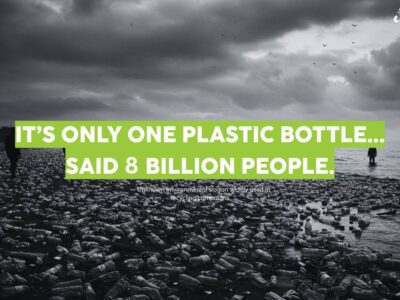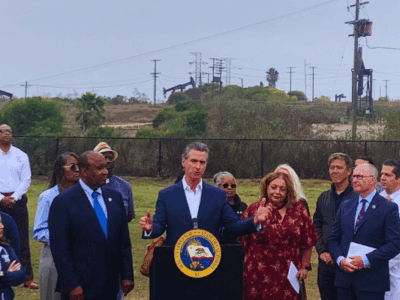Udall and Lowenthal Lead Charge to Break Free From Plastic Pollution
The Senator and Representative introduce bold new federal plastics legislation
Last week, Senator Udall (D-NM) and Representative Lowenthal (D-CA), joined by Senator Merkley (D-OR) and Representative Clark (D-MA), announced that they were introducing federal legislation to combat the plastic pollution crisis. The Break Free From Plastic Pollution Act will go beyond past Congressional efforts to address plastic pollution, such as the Save Our Seas Act, which largely focused on stemming the tide of plastics entering waterways abroad and on promoting recycling.
Unlike past legislation, the Break Free From Plastic Pollution Act acknowledges that source control and producer responsibility are important parts of the equation when it comes to managing the overwhelming amount of plastic waste U.S. citizens produce. I’ve written before about the dire consequences of all of this plastic pollution—and about the fact that only 10 percent of plastic waste is recycled. Recycling alone will not address this crisis.
Accordingly, the Break Free From Plastic Pollution Act includes measures that are designed to stop plastic pollution at the source by reducing consumer demand, and to shift responsibility to plastic producers—many of whom have promoted recycling-focused legislative efforts in recent years—to manage the waste resulting from consumption of their products. Among other things, the Break Free From Plastic Pollution Act:
- Mandates extended producer responsibility, requiring producers of plastic containers, packaging, and food service products to create and finance waste management and recycling programs;
- Creates a federal beverage container refund program;
- Bans some non-recyclable single use plastic products;
- Creates a federal ban on single-use plastic carryout bags, and places a fee on other types of carryout bags;
- Mandates minimum recycled content requirements for packaging, food service products, and beverage containers;
- Stops the shipment of plastic waste to developing countries;
- Temporarily pauses permitting for new plastic plants until EPA studies the environmental effects of those plants so it can issue new regulations; and
- Protects state and local jurisdictions that enact more stringent standards.
Many of these measures track the recommendations made by our Frank G. Wells Environmental Law Clinic client, Surfrider Foundation, and our clinic students, in a briefing booklet that was presented to Congressional staff during a trip to Washington, D.C. in January 2019. We met with Representative Lowenthal’s staff at that time, and shortly thereafter collaborated with Surfrider Foundation and the Representative’s staff as they developed an outline of draft legislation. We are thrilled to see the final results of that work: a real step towards reducing the harmful plastic pollution that contaminates our rivers, lakes, and oceans.
You can be a part of the effort to pass meaningful federal plastic pollution legislation too: the Break Free From Plastic Pollution Act currently has 7 co-sponsors in the Senate and 34 co-sponsors in the House, but you can help the Act garner more support by signing on to the Surfrider Foundation’s action alert here.







Reader Comments